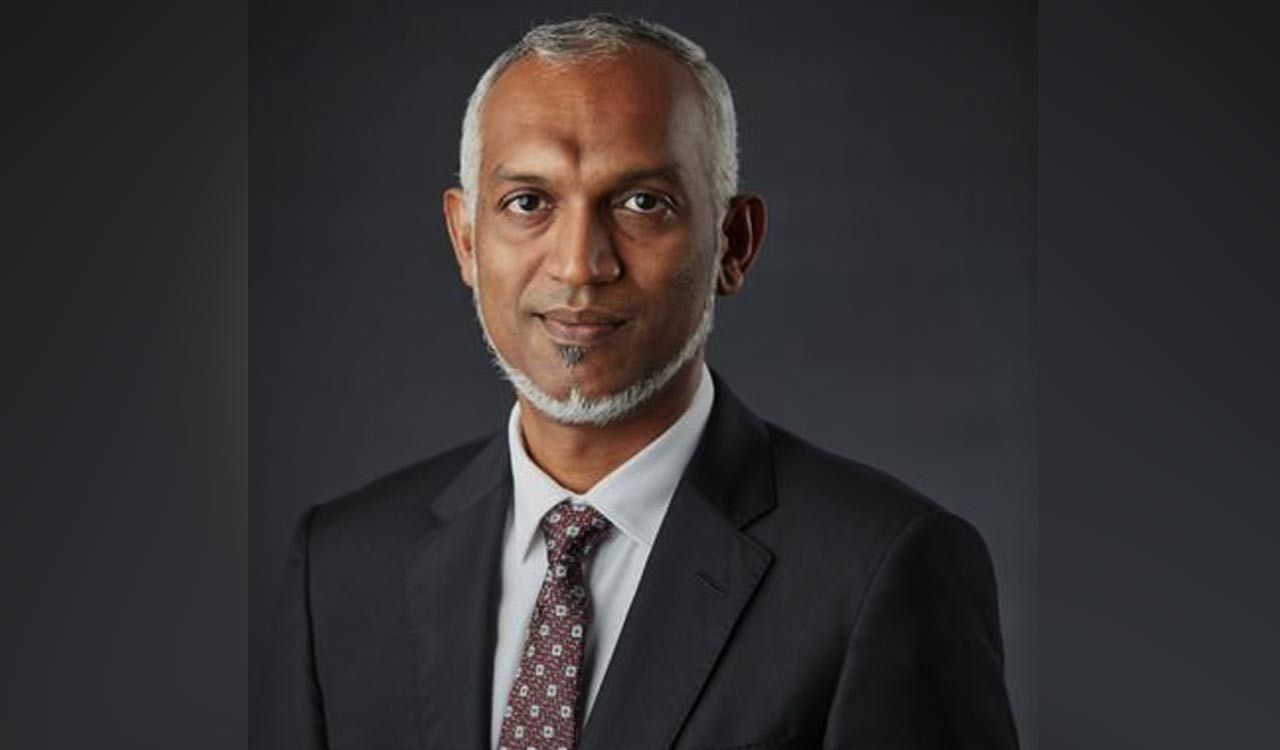Maldives President Mohamed Muizzu’s strident anti-India campaign poses a new set of diplomatic challenges to New Delhi
Published Date – 11:30 PM, Thu – 23 November 23

Maldives President Mohamed Muizzu. Photo: X
The recently-elected Maldives President Mohamed Muizzu’s hyperbolic and strident anti-India campaign poses a new set of diplomatic challenges to India in the face of growing Chinese influence in the politics of the tiny archipelago. After whipping up nationalist sentiments during the campaign that focused on ‘India Out’ plank, Muizzu has now asked New Delhi to withdraw its troops from the islands. He is a proxy of former President Abdullah Yameen who is currently in jail on corruption charges. During Yameen’s five-year regime from 2013 to 2018, the country had veered deep into the Chinese orbit and joined Xi Jinping’s ambitious Belt and Road Initiative (BRI), adding to India’s woes at a time when debt-ridden Sri Lanka had already ceded the Hambantota port to China. It must be pointed out that India barely has 75 personnel from the Navy and Coast Guard, mostly technicians and crew engaged in patrol and air rescues. Nearly 40 development projects, including a $500-million Greater Male Connectivity Project, form the backbone of the Indian investments. By virtue of its sheer geographical proximity, India will always remain its first responder — the key reason why Indian troops are stationed on Maldivian islands. With vaccines and financial aid, India was also the first to step in and help Maldives during the Covid pandemic. In 2020, India extended aid worth $250 million to help the nation fight off the impact of Covid on its economy, $40 million in 2021 and another $100 million in 2022. Maldives was also the first to receive vaccines from India.
Be it the coup attempt in 1988 which was averted by Indian intervention or disasters such as the devastating 2004 tsunami, the drinking water crisis in 2014 or Covid, India has proved to be a reliable neighbour extending assistance with no strings attached, unlike China’s whose ultimate goal is to keep India in check in its own backyard. Beijing’s growing hegemony and maritime assertiveness in the region is a cause for concern for India. Muizzu’s campaign fanned anti-Indian sentiments across the island nation, wrongly portraying Indian aid as a military presence and an affront to the nation’s sovereignty. New Delhi cannot afford to ignore the growing activities of Islamic radicals in the island nation and their campaign to join the China-Pakistan axis against India. Already, Beijing has been relentlessly trying to undermine Indian influence in Maldives and Sri Lanka, apart from driving a wedge between India and its close Himalayan neighbours — Nepal and Bhutan. Located just 70 nautical miles away from India’s Minicoy Island, Maldives, a tourist hub famous for its pristine tropical beaches, is traditionally seen to be part of India’s sphere of influence. The country is surrounded by crucial sea lines of communication, and strategically located between India and Diego Garcia — making it a preferred destination for operating a military base and maritime surveillance.




